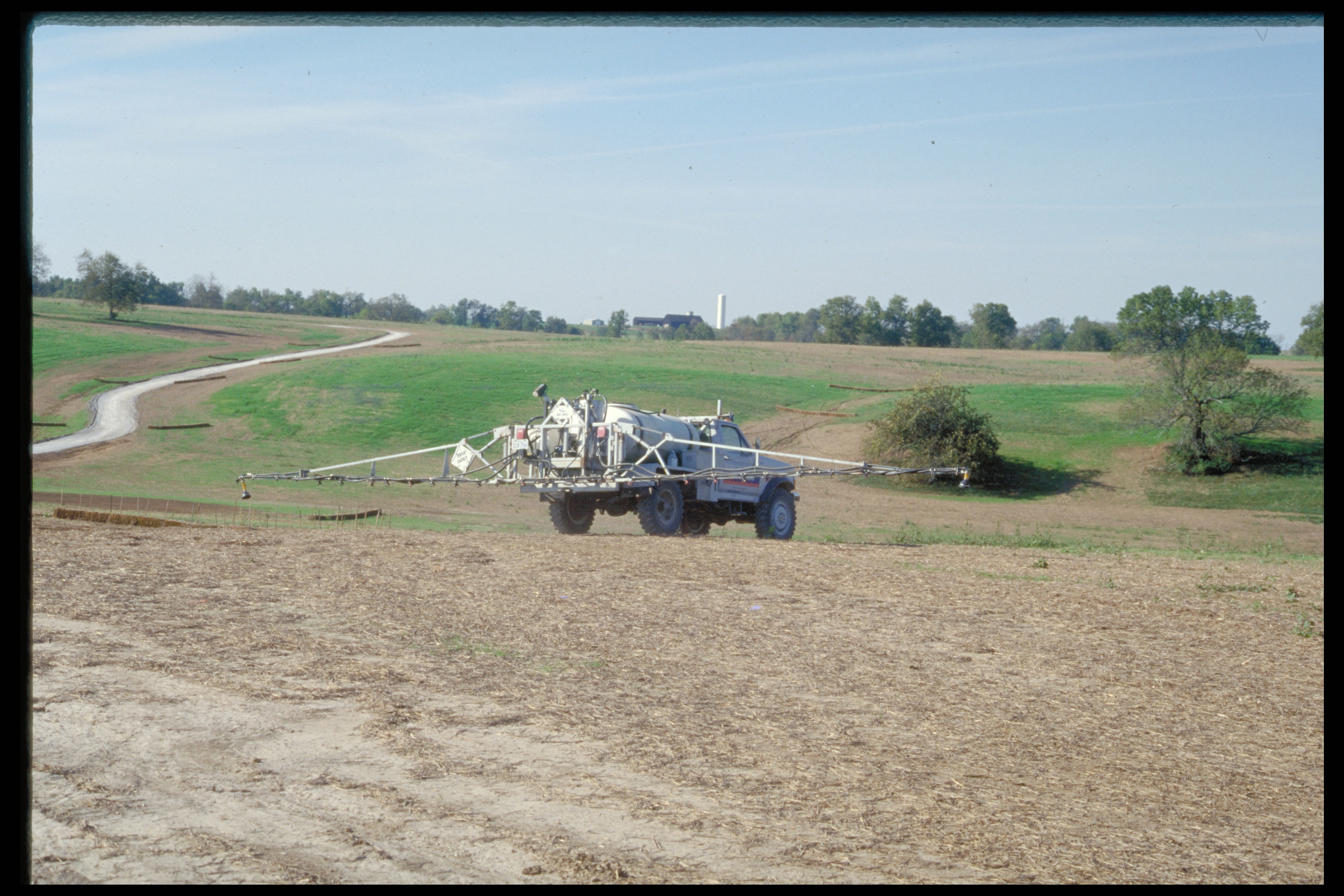Extension helping pesticide applicators prepare for growing season
Extension helping pesticide applicators prepare for growing season

The University of Kentucky Cooperative Extension Service is finding alternative ways in the midst of COVID-19 to help the state’s private pesticide applicators get the education they need to farm this spring.
Kentucky has around 13,000 private pesticide applicators. This certification allows them to apply chemicals to crops on their farm. As is the case in many states, the land-grant university is in charge of the training, testing and certifications for this group. Without this certification, producers cannot purchase restricted-use pesticides for their operations.
“We want them to be safe when they use pesticides and to protect themselves, their families, local wildlife and the environment,” said Ric Bessin, UK Pesticide Safety Education Program coordinator and entomologist in the College of Agriculture, Food and Environment.
Private pesticide applicators must undergo training every three years to keep their certification and stay updated on changes to U.S. Environmental Protection Agency’s core competency areas.
Typically, most of the private pesticide applicator training is done in person at county extension offices during the late winter and early spring with February being National Pesticide Safety Education Month. When the pandemic began at the same time as the 2020 trainings, UK extended the expired certifications until the end of the year and helped those needing first-time training get the required education to farm in 2020.
“We found ways to help a couple hundred producers farm last year,” Bessin said.
But due to the backlog of expired certifications, half of the state’s applicators need training before the 2021 growing season begins. To safely meet this need, Bessin worked with Michael Williams from the Kentucky Department of Agriculture and Jessica Rishel and Jeff Ludwig from UK Agricultural Communications Services to offer extension agents the option to host local trainings and manage applicator certifications online.
“Delivering private pesticide applicator training is an important part of the work that goes on in our extension office,” said Greg Drake, Butler County agriculture and natural resources extension agent. “Applicators want and need to stay up to date on the latest application technology and current on the rules and regulations that affect pesticide application. We are working to find ways to deliver the training our applicators need in a safe and effective way.”
Extension agents can choose from a variety of online pesticide education videos developed by UK specialists and tailor them to their clients based on the crop they produce and their interests.
Ben Rudy, Fulton County agriculture and natural resources extension agent, said pesticide applicators are the largest group he trains each year. With only a small meeting space at the extension office and social distancing requirements, he would have had to triple the number of trainings he offered, if they had not been able to offer it online.
“By offering online trainings via Zoom, we are able to train these producers without any possible exposures, and they can receive the education from the comfort of their home, office or shop,” he said.
While online trainings are safer and convenient, they do not always work for all extension clients. Chris Schalk, Barren County agriculture and natural resource agent, said producers have the option to receive the education in-person or online.
“I’ve had producers choose both options,” he said. “I did have one person thank me for the in-person training, because ‘he just doesn’t do the Zoom thing well.’”
When in-person trainings occur, agents and their clients follow all of the state and local guidelines to protect each other including social distancing and mask wearing.
Curt Judy, Todd County extension agent, said he continues to do a lot of in-person trainings, as his southern Kentucky county has many rural areas that lack reliable internet access.
“To comply with COVID-19 guidelines, attendance is limited to nine producers per training. Due to the attendance limitation, I have scheduled more trainings to train all the producers that need certification this year,” he said.
There is value in private pesticide applicator training beyond purchasing and applying restricted-use pesticides. A Washington State University study reported the trainings earned first-time applicators between $8,966 and $13,156 in net monetary returns. Returning applicators reported annual profit increases ranging from $6,787 to $13,366.
“Private pesticide applicators are able to use products that can help them increase crop quality and yield, which increases profits, and they save money by not having to pay a commercial pesticide applicator to spray their crops,” Bessin said.
More information about the University of Kentucky Pesticide Safety Education Program is available at http://entomology.ca.uky.edu/uk-pesticide-safety-education-program-psep.
